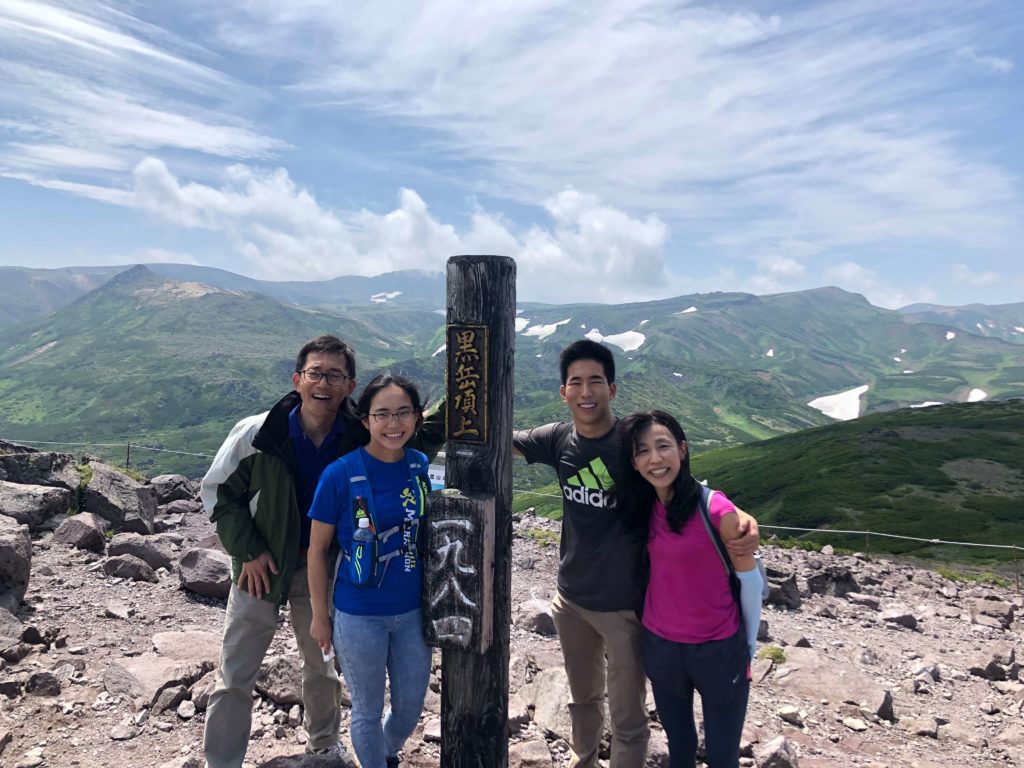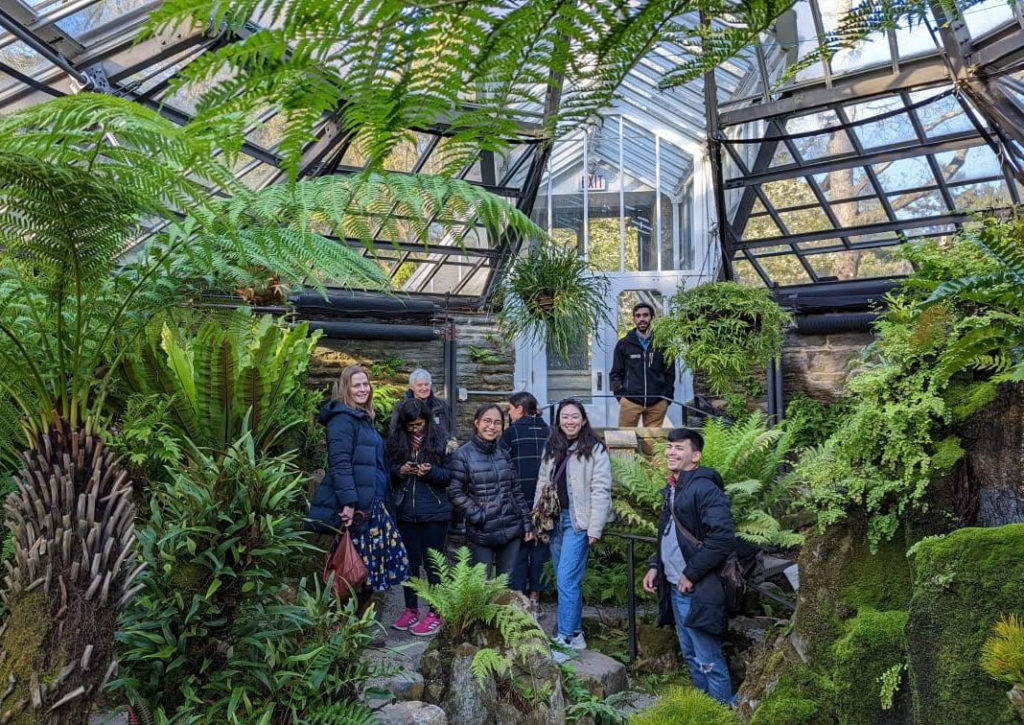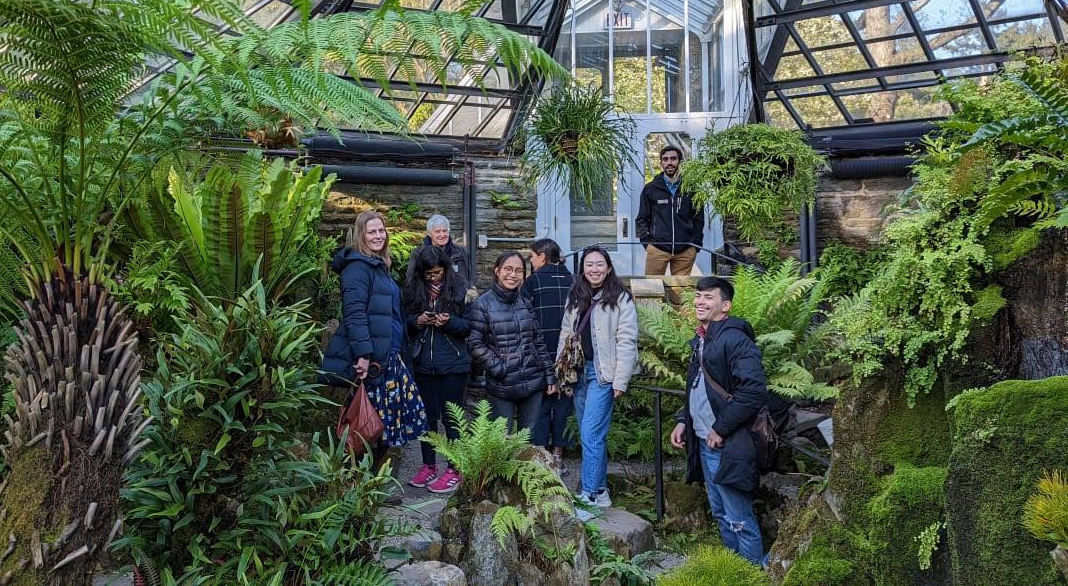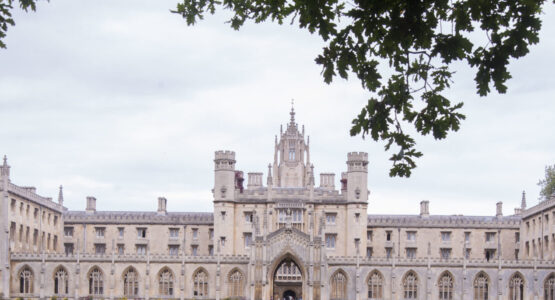Satowa Kinoshita (2013) studied Natural Sciences (Chemistry) at St John’s. She is now working to tackle climate change at the intersection of the private and public sector. In this article she tells us why she is so passionate about the environment and what being a climate entrepreneur really means.
I’ve always been fascinated by the natural world, whether spending childhood summers in the mountains of Nagano, Japan where I was born, or staring up at skeletons in the Natural History Museum in D.C. where I grew up. I still vividly recall the moment in eighth-grade geology class when I learned about the greenhouse gas effect, the hockey-stick rise of carbon dioxide emissions and the feedback loops on Earth’s systems. Climate change threatened both a personal and existential connection with the natural world. Since then, environmental sustainability and finding my role in turning the tide has been my North Star. Grounded in the sciences at St John’s, my interests have expanded to encompass the business world as well.

Working on climate change is often inherently entrepreneurial, as it requires rethinking systems, engaging with diverse people and disciplines, and enacting rapid and urgent change. Right after graduating from Cambridge, I had the opportunity to participate in a climate programme and incubator led by the EU’s Climate-KIC. I learned some of the hard and soft skills in the earliest stages of building a startup, from ideating and teaming, developing a business plan, to pitching to a jury. Developing my team’s regenerative agriculture idea tested our ability to balance a vision ambitious enough to make an impact with a plan grounded in science and economics, our creativity through multiple cycles of iteration, and our empathy towards our stakeholders from farmers to suppliers and to each other as teammates. This experience planted the seeds of entrepreneurship and taught me many transferable skills which could be particularly well applied to tackling climate change.
Even after I joined a consulting firm where my work largely focused on advising financial services clients, I continued to volunteer with climate organisations, especially when I found myself with less time on the road and more time at home during the pandemic. This included working with not-for-profits such as Climate Changemakers to support climate candidates and policy through voter outreach and engaging representatives, and Global Urban Development to research new construction technologies for affordable and sustainable housing and communities. These experiences introduced me to grassroots models for climate action and their synergies with both local policy and international initiatives. They also affirmed my motivation to work on climate change full time.

In my current role at a development finance firm, I have been involved in designing a project finance fund for nature-based carbon projects in emerging markets. Carbon offsets are an important part of our toolkit to mitigate greenhouse gas emissions and to avoid the worst impacts of climate change. The demand for high-quality carbon credits is growing rapidly, as organisations set net-zero commitments and face mounting public pressure and regulatory scrutiny. The potential in nature-based carbon projects, including reforestation, afforestation and restoration, is especially exciting for their co-benefits to biodiversity and livelihoods. However, lack of lower cost capital with mission-aligned terms for project developers prevents these urgently needed projects from moving forward. My work has included both researching the current market structure as well as interviewing project developers, corporate buyers of carbon credits, and potential investors to understand the optimum fund structure, financial model, and other mechanisms to fully address the resource and transparency gap.
My overarching mission is to make the world a better place to live in, and a stable climate is integral to that. In particular, I find myself returning to three key themes:
1. Driving climate policy: while private sector action and grassroots social movements also play a key role, policy and regulation can catalyse far-reaching changes and level the playing field by accounting for externalities.
2. Scaling of, and continued research and development in, carbon drawdown: accelerating nature-based and technological sequestration is now a necessary part of the solution, in addition to avoiding and reducing emissions.
3. Climate adaptation and systems-level transformation: even in the face of urgent and rapid change, climate justice needs to be part of the equation.

In the short to medium term, I see myself working at a fund that invests in scaling climate mitigation and adaptation solutions, while working closely with entrepreneurs through incubator or accelerator programmes. I’d like to build enough credibility and influence in economic development at the local or regional level to create ecosystems that both support and benefit from climate innovations. That said, I could not have imagined the path that my life took when I walked out of Senate House five years ago – and I’m sure I’ll think the same five years from today!



